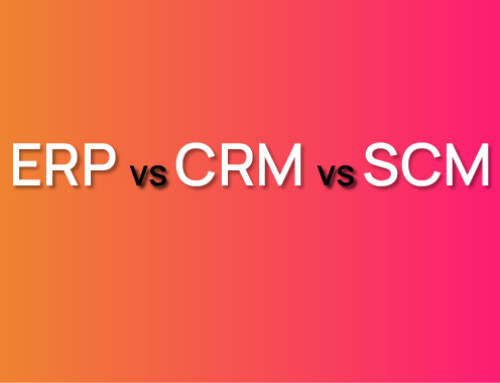Contents
Used to be, when I heard about an Internet phone, I’d get this image of a 2000-ish call center with a dozen cubicles and those cold-calling salespeople. It turns out phone calls going through the Internet instead of the usual communication network are actually much more prevalent, especially in recent years. Small businesses and Internet phones go great together, apparently, and that has only improved these recent years.
What is Session Initiation Protocol (SIP)?
How does SIP Calling Work?
SIP is a communications protocol that provides a way to manage the establishment, termination and control of sessions. SIP is an open standard, and it is used for Voice over IP (VoIP) as well as Internet telephony. SIP can be implemented on any device that has IP connectivity, including desktop computers, laptops, smartphones and tablets.
The SIP protocol allows users to make calls from one person’s device to another without having to first establish connections through the public telephone network or using VoIP service providers like Vonage or MagicJack. Instead of traditional phone service providers providing them with numbers for making outgoing calls (which are then billed at rates set by those providers), users simply need a unique email address associated with their account on their chosen VoIP provider (such as [email protected] ). VoIP services typically include voicemail transcription so that you can read your messages in text form instead of listening to them directly on your phone; this saves money since you don’t have to pay long distance fees when talking over regular landlines or mobile networks.
SIP, or Session Initiation Protocol, is a software-based solution that uses a computer server to route your calls. It doesn’t work like a mobile service; instead, it works like a landline phone—it connects you directly to the person you’re calling.
The difference between SIP and other services is that SIP works over the internet, so you don’t need to use mobile data or WiFi to make calls. This means that if you’re somewhere with poor cell reception, like underground in a subway station or stuck in traffic on your way home from work, your call will still go through as long as you have an internet connection.
Don’t You Mean VoIP?
It’s easy to mix things up and wonder about the difference between VoIP and SIP — I did it for longer than I’d like to admit! Actually, there is only one form of VoIP that is not based on SIP tech, and that’s the so-called on-prem or on-premises VoIP. That is an old solution for handling internal communications and one that is hardly around today. You’ll probably find it in companies with really old legacy software that cannot handle new SIP protocols.
SIP and Small Businesses
The rise of VoIP (Voice over Internet Protocol) technology has changed the way we communicate with one another. From the way we talk on our phones to how we conduct business meetings, VoIP has had a huge effect on our lives. One of the most popular and effective uses for VoIP is SIP calling. In this article, I’ll explain what SIP calling is and why you should use it in your business as soon as possible if you aren’t already doing so.
What is SIP Calling?
SIP stands for Session Initiation Protocol, and it’s the standard used to connect VoIP calls. It’s an important piece of the VoIP puzzle because it’s how your device (like a phone) is able to establish a connection with another device (like another phone).
SIP works by sending messages back and forth between two endpoints (for example, your PC/laptop), negotiating call setup details including signalling, bandwidth, encryption and more. These messages are sent over UDP or TCP port 5060.
SIP Calling Benefits
SIP Calling has several benefits, including:
- Reduced costs. When you switch to SIP Calling, you’ll save money. The average cost of owning and running a VoIP network for an organization is $1 per user per month. With the help of Jive Communications’s team of experts, you can bring down this number even further by streamlining your communications system—and increasing productivity in the process!
- Increased productivity. By using SIP technology to connect employees across departments and offices, you’ll be able to increase collaboration and efficiency in your workplace—which will lead directly to higher profits for your business! This means that not only will employees be happier with their jobs because they have better tools available at their disposal (such as video calls), but they’ll also feel more engaged than ever before because they are part of something bigger than themselves: an organization that cares about its workers’ well-being not just financially but emotionally too.
- Reduced time spent waiting around on hold or transferring calls between departments unnecessarily due both parties involved could communicate directly through one platform instead.”
Reduced costs. By using SIP technology to connect employees across departments and offices, you’ll be able to reduce the cost of communication in your workplace—which will lead directly to higher profits for your business! This means that not only will employees be happier with their jobs because they have better tools available at their disposal (such as video calls), but they’ll also feel more engaged than ever before because they are part of something bigger than themselves: an organization that cares about its workers’ well-being not just financially but emotionally too.”
Is SIP Cost Effective?
Is SIP Calling cost-effective?
SIP is a cost-effective solution for small businesses that want more mobility and flexibility. Many of the top VoIP providers offer several plans at different price points, so you can choose the one that works best for your business. In general, you’ll find that SIP calling will be less expensive than traditional landlines and mobile phones. The technology behind it allows for lower costs, which in turn translates into savings for customers.
What are some of the other benefits?
There are many reasons to consider switching to an all-digital voice solution like SIP:
How Can I Switch to SIP Calling?
You can easily switch to SIP. SIP is an open standard, so it’s supported by many different vendors, and you can choose between installing the solution in-house or using a managed service.
It’s easy to use and maintain, and you can use it for both voice calls and video conferencing with multiple participants.
SIP is a standards-based protocol that can be used with any network, including your company’s existing VoIP infrastructure. Because it’s open source and free to use, you won’t have to pay licensing fees or royalties.
SIP also provides many benefits over traditional phone systems:
- SIP is easier to deploy and manage than traditional phone systems. It’s often deployed with cloud or on-premises solutions for scalability and high availability. You can even use your own appliances or third-party routers if needed!
- SIP calls are more secure than traditional phone systems because they’re encrypted end-to-end using SSL/TLS encryption (or TLS1.2).
SIP Can Help Save Money
Having a phone system that can be used on any device, in any location and allows employees to work remotely can also help increase productivity. The ability to make and receive calls from anywhere is invaluable for businesses that have remote employees or customers. In addition, SIP systems are designed to reduce costs by using VoIP technology over traditional phone lines which means you’ll likely save money on your next bill!
One of the biggest benefits of having a SIP calling system at your business is its ability to increase employee satisfaction. Employees who feel as though their voices are heard are more productive, loyal and happier overall; which is why it’s important for managers and executives alike to encourage communication between colleagues regardless of where they’re located within or outside of the office building itself!
If you’re looking for a better way to communicate with your customers, or if you want to save money on long-distance calls, then SIP calling is a great option. It offers several benefits over traditional landline systems, including lower costs and easier management. If you want more information about how SIP works or how it can benefit your business, please give us a call at (800) 123-4567.
SIP is more flexible than traditional phone systems. It’s easy to integrate with other applications and services, including those from Microsoft, Amazon Web Services (AWS), Google Cloud Platform, Salesforce, Oracle and more.
Advantages of SIP Calling for Small Businesses
SIP Call is a new feature that allows you to make voice calls (SIP calls) over an internet connection instead of a phone line. SIP call looks like a normal phone call except the audio data is sent over the Internet instead of through a phone provider.
SIP Call is a new feature that allows you to make voice calls (SIP calls) over an internet connection instead of a phone line.
SIP calling is a new feature that allows you to make voice calls (SIP calls) over an internet connection instead of a phone line.
The main benefits of SIP calling are:
- You can make and receive calls at any time, even if your normal phone line is down, as long as you have access to the internet. This makes it easy to work from home or travel and still be able to respond to incoming calls whenever they come in.
- The quality of SIP calling is better than traditional phone lines because it uses VoIP technology, which delivers clearer audio than what’s possible with traditional landlines.
To use SIP Calls all you need is an Internet connection.
It’s easy to use SIP Calls. All you need is an Internet connection, and if you’re using your mobile phone, your existing data plan will allow it to work over the Internet. There are no additional charges or fees involved in making or receiving SIP calls. They’re completely free!
SIP calls work across all devices—whether they’re on desktop computers, laptops, tablets or smartphones.
SIP call looks like a normal phone call except the audio data is sent over the Internet instead of through a phone provider.
SIP call looks like a normal phone call except the audio data is sent over the Internet instead of through a phone provider. The same technology that VoIP calls use, SIP calls are more secure than traditional phone calls and can be used on any computer with an internet connection.
All devices will be able to make and accept SIP calls – your laptop, desktop, smartphone, etc.
SIP call works on any device with a microphone and speakers. You can make or receive SIP calls from your laptop, desktop, smartphone, etc. The client application is available for Android, iOS, Windows and MacOS as well as Linux operating systems (desktop version). The same client application can be used on any browser that supports WebRTC protocol like Chrome or Firefox (we recommend using the latest versions)
You can make or receive SIP calls anywhere you have an internet connection.
SIP Call is a great way to make and receive VoIP calls from anywhere you have an internet connection. You can use SIP Call on your laptop, desktop, smartphone, tablet or other devices. You can even use it with any internet service provider (ISP) in your area—it doesn’t matter if they don’t offer VoIP calling services at all!
You can make or receive SIP calls even when you’re travelling internationally.
The best part about SIP calls is that you don’t need to change your phone number or buy a new SIM card. You can make and receive SIP calls from anywhere in the world, as long as you have an internet connection. This means you can use multiple devices (your home phone, mobile phone, computer) at the same time to make calls without having to move SIM cards around!
Instead of paying your phone company for your minutes, you can use your existing data plan for your smartphone, tablet, or laptop to make a call over the internet at no additional cost.
SIP calls are made over the internet and do not use the traditional phone network. This means that you can make or receive SIP calls anywhere you have an internet connection, whether you are at home or travelling around the world! Even when overseas, Mango Voice will still work as long as there is a stable internet connection.
And if that wasn’t enough to get your attention, we also offer local and international calling rates that are much lower than those offered by traditional carriers like Verizon, T-Mobile and AT&T.
You can also make local and international calls from Mango Voice directly from your web browser at very competitive rates with no monthly fees or contracts. To use this feature, you will need to download the Mango Voice app on your mobile device and log in before making a call.
You can also use it as an extension of your existing data plan to make calls on the go!
With SIP Call you have more ways than ever before to stay connected with friends, family, and coworkers.
With SIP Call you have more ways than ever before to stay connected with friends, family, and coworkers. You can make or receive calls anywhere you have an internet connection. And whether you’re travelling internationally or just going out of the office for lunch, your calls will follow you wherever they might take you.
You can also use SIP Call to call any other user on the app regardless of whether they are using SIP Call as well—a feature we call interoperability!
Conclusion
In this article, we’ve covered what SIP Call is and how it works. We hope that you enjoyed learning about SIP Call and how it can help make your life easier by connecting you with friends, family, and coworkers. If you have any questions about SIP Call or Mango Voice in general feel free to reach out!
VoIP and SIP are two terms you’ll often hear in the world of business communications. If you’re new to these concepts, it can be confusing to know which one will work best for your business. Fortunately, this quick guide will help you understand the difference between VoIP and SIP so that you can make an informed decision about what kind of phone system is right for your company.
Session Initiation Protocol, or SIP, is the underlying technology used to make VoIP work.
SIP, or Session Initiation Protocol, is the signalling protocol used by VoIP. It’s what sets up and tears down calls between users. SIP is an open standard that many VoIP providers use to communicate with your phone and other devices.
VoIP providers like Vonage use SIP because it’s flexible and allows them to set up new accounts quickly without having to ask you for much personal information, like credit card numbers or Social Security numbers.
Voice over Internet Protocol, or VoIP, is the technical term for making phone calls over the internet.
VoIP is a technology that allows you to make phone calls over the internet. It’s also called IP telephony, and it’s different from traditional landline phones.
Actually, VoIP is just one of many ways people can use SIP. For example, some businesses use SIP for instant messaging instead of email so that they can communicate with customers in real-time and avoid having messages get buried or lost in their inboxes.
A basic SIP trunk has a few features that make it unique from a traditional phone line with a PBX system (private branch exchange):
A basic SIP trunk has a few features that make it unique from a traditional phone line with a PBX system (private branch exchange):
- It’s not a VoIP service. A SIP trunk is simply a phone line that uses SIP to make calls. You can use this type of line with any VoIP phone or software application, so you don’t have to switch to an entirely new service if you want to ditch your old PBX system and upgrade to something more modern.
- It has its own dedicated number that works across all devices, unlike many other types of calls made through VOIP services like Skype or Google Hangouts. This means customers can call their business back without having to look up multiple numbers on their mobile device—and it also helps reduce fraud because there are no additional digits at the end of the callers’ numbers for someone else (like scammers) to spoof or steal money from them by pretending they’re calling from someone else’s number!
Two types of VoIP systems are common in the marketplace today: hosted cloud and on-premises.
There are several types of VoIP systems available to businesses today. The most common are hosted cloud systems and on-premises systems.
Hosted cloud solutions allow you to use a carrier’s infrastructure, instead of maintaining your own hardware and software in your office. This approach is easier to set up and maintain than an on-premises solution, but it requires that you trust the hosting company with your sensitive data (e.g., call recordings).
On-premises systems, by contrast, give you more flexibility in terms of features and functionality since they’re not constrained by what the carrier offers (although some carriers may offer feature parity with their own branded services). On one hand this can save money since there’s no licensing fee; however, it does mean that you’ll have to buy some equipment yourself upfront—which may not be within every business’ budget—and also pay for ongoing maintenance costs as well as bandwidth usage charges if you’re using SIP trunks directly through an internet service provider like AT&T Business or Comcast Business Voice
Cloud VoIP is also called Hosted VoIP because the phones being used are hosted at a cloud PBX provider.
Cloud VoIP is also called Hosted VoIP because the phones being used are hosted at a cloud PBX provider. While all VoIP providers offer some form of hosted PBX, there’s a difference between those that offer it as an add-on and those that do it as their primary offering.
Hosted PBX offers more flexibility than on-premises solutions since you don’t need to maintain the hardware or software yourself. You’ll also find that hosted solutions tend to be cheaper than traditional on-premises systems—which is great news if your business has limited funding for equipment and staff! Finally, when choosing a hosted solution like SipTrunk, you gain access to greater support options than if you were using an on-premises system (such as adding new extensions).
On-premises VoIP systems are also referred to as legacy PBX systems because they are similar to traditional PBX systems.
On-premises VoIP systems are also referred to as legacy PBX systems because they are similar to traditional PBX systems. The term “legacy” is used when referring to a technology that has been supplanted by a newer system but still continues to be found in use. A legacy PBX system is one that uses the same basic technology as older phone systems but has been modified for modern use. For example, if you have a telephone with an old-fashioned dial tone instead of push buttons, it’s very likely that you have a legacy phone line and not one from today’s modern digital lines!
A typical on-premises VoIP solution uses networked computers or servers (a server farm) for processing all calls—and if there’s enough processing power available within this server farm then it may not be necessary for calls placed between phones within your organization or business location(s) – whereas cloud PBX solutions often rely on third-party providers like Google Voice (or others).
If you want to use SIP or want to implement a new business phone system, you should know what you’re getting into.
SIP stands for Session Initiation Protocol and is used to make VoIP work. VoIP is the technical term for making phone calls over the internet, but that’s not all it can do! A basic SIP trunk has a few features that make it unique from a traditional phone line with a PBX system (private branch exchange).
- It can be easier to install than traditional phone lines because you don’t need any extra devices or equipment in your home office.
- You can have multiple numbers on one account (like an extension at work) or even multiple accounts for multiple businesses.
SIP is a technology that can be used to make VoIP work. It is important to understand the difference between SIP and VoIP so that you can choose the right system for your business. If you are thinking about implementing a new phone system for your office or home, it’s important to understand what kind of system will work best for your needs before making any decisions about buying equipment or hiring outside help for installation purposes.
VoIP is a term that refers to all voice calls made over the internet
VoIP, or Voice over Internet Protocol is a term that refers to all voice calls made over the internet. VoIP uses the same type of technology as Skype or Google Hangouts. It can also be used from your home computer and on your smartphone’s apps or through special hardware at work.
VoIP has many benefits for businesses and individuals alike, including:
- Reduced costs
- Improved call quality
- Greater mobility
SIP is a signalling protocol that helps make VoIP calls possible.
SIP stands for Session Initiation Protocol, but it’s also known as SIP trunking. A signalling protocol like SIP provides the means to establish and maintain VoIP calls between two parties, which is quite different from traditional phone services like landlines and cellular networks. In fact, if you’ve ever used a smartphone or VoIP app on your computer or tablet to call someone using a traditional phone line or mobile network connection, then you have already experienced how SIP works! You can even use SIP without knowing about it—you just need an internet connection (and possibly some extra apps).
Because of its role in helping make VoIP calls possible by exchanging information about call setup between two parties (a caller and callee), SIP is also used in other applications besides VoIP communications—for example: management of media sessions (like video conferencing) over the internet; management of instant messaging; etc., so we’ll look at these other uses next before getting back to our original topic!
SIP can be used for many other things besides VoIP calls.
SIP can also be used for other things besides VoIP calls, like instant messaging. This is because SIP is an open protocol, which means that it can be used by many different vendors, products, and services.
SIP and VoIP can work together with on-premises and cloud-based systems.
SIP and VoIP can work together with on-premises and cloud-based systems. There are many benefits to this, including cost savings, the ability to use different types of communication services from a single service provider and more flexibility in managing communications.
With SIP, you can connect your business location (or sites) to its network or even multiple networks via a Public Switched Telephone Network (PSTN) connection. This means that you don’t need a separate landline for each site; instead, you could use one phone number for all locations connected through a SIP trunking connection over broadband Internet or WAN links—saving both time and money by using just one number per business rather than multiple numbers per location.
You may have heard that VoIP calls are cheaper than traditional landline calls. But what exactly does this mean? First off: what is VoIP?
SIP is an important part of today’s communications networks, but you can use it too!
SIP is an important part of today’s communications networks, but you can use it too! SIP is the standard for transmitting voice and video over IP. It’s also used to send text messages, faxes, and even emails.
Get Your SIP ON the Sensible Way
RunSensible’s Business Phone feature uses first-party SIP tech to bring you a perfect, fast business VoIP system without the insane prices of other providers. We create our own SIP infrastructure, which means your phone data won’t go through a dozen 3rd party software and services, potentially being exploited or leaked. RunSensible offers a host of business phone and VoIP services. You can sign up for free now and make your first call in a few seconds!
Disclaimer: The content provided on this blog is for informational purposes only and does not constitute legal, financial, or professional advice.






